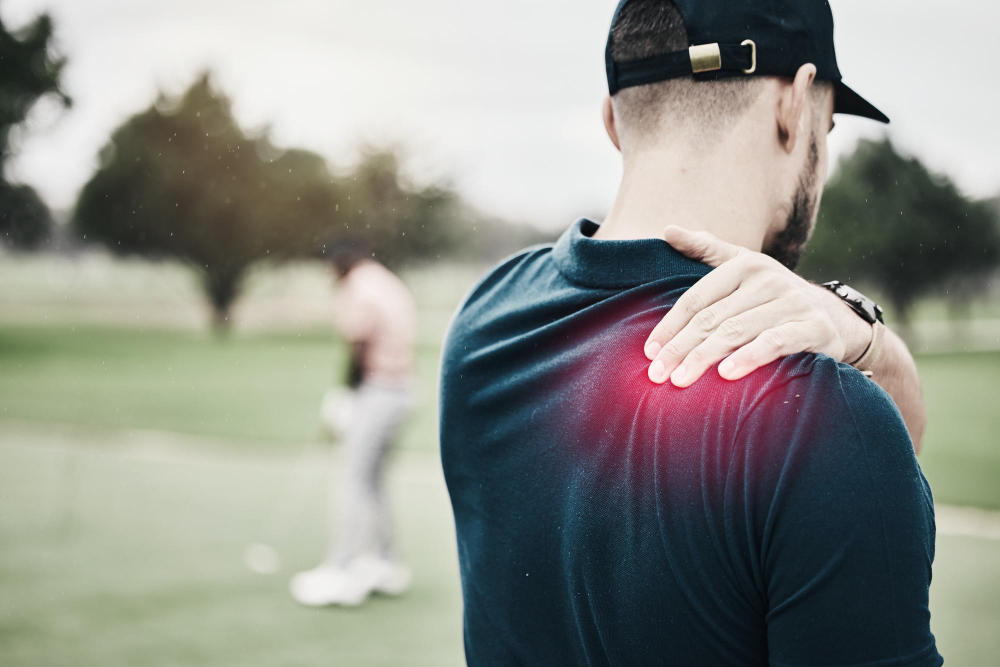
Shoulder injuries can be debilitating, impacting everything from simple, everyday tasks to high-level physical performance. With its intricate structure and remarkable range of motion, the shoulder is one of the most fascinating joints in the human body—but it’s also one of the most vulnerable. Knowing the signs, symptoms, and treatment options for common shoulder injuries can help you stay proactive about your health and recovery.
Whether it’s a sports-related injury, wear-and-tear from repetitive motion, or an unexpected accident, shoulder pain should not go untreated. If you're searching for an experienced orthopedic surgeon in Debary, FL, this guide will provide you with valuable insights into common shoulder injuries and how specialists can help.
Anatomy of the Shoulder
Understanding the shoulder’s complex anatomy is key to recognizing how injuries occur. Your shoulder is made up of three main bones:
- Humerus (upper arm bone)
- Scapula (shoulder blade)
- Clavicle (collarbone)
These bones meet at two joints, the glenohumeral joint and the acromioclavicular joint, which allow for a wide range of motion. Surrounding them are muscles, tendons, ligaments, and the rotator cuff, all of which work together to stabilize and move the shoulder. This complexity, while vital for its functionality, also makes the shoulder more prone to injuries.
Common Shoulder Injuries
1. Rotator Cuff Tears
The rotator cuff consists of four muscles and their tendons, which stabilize the shoulder and allow you to lift and rotate your arm. Rotator cuff tears are among the most common shoulder injuries, especially in athletes and individuals over the age of 40.
Symptoms:
- Pain, especially when lifting the arm
- Weakness or limited range of motion
- Popping or clicking sounds during movement
Causes:
- Overuse or repetitive motion (common in sports like baseball and tennis)
- Degeneration over time
- Sudden injuries, such as falling or lifting a heavy object
Treatments:
- Non-surgical options include physical therapy, anti-inflammatory medications, and corticosteroid injections.
- For severe tears, an orthopedic surgeon in Debary, FL can recommend and perform minimally invasive surgery to repair the damaged tendons.
2. Shoulder Impingement Syndrome
Shoulder impingement occurs when the tendons of the rotator cuff become compressed between the shoulder blade and the humeral head.
Symptoms:
- Sharp pain when lifting or reaching overhead
- Chronic pain that worsens at night
- Limited mobility
Causes:
- Overhead movements in sports like swimming or basketball
- Postural issues or muscle imbalances
Treatments:
- Resting the shoulder and avoiding aggravating activities
- Strengthening exercises for the rotator cuff and shoulder blade muscles
- If these methods fail, arthroscopic surgery may be required to provide relief.
3. Dislocated Shoulder
A dislocated shoulder happens when the upper arm bone pops out of its socket. Given the shoulder's mobility, it’s one of the most frequently dislocated joints.
Symptoms:
- Visible deformity or out-of-place shoulder
- Extreme pain and swelling
- Difficulty moving the arm
Causes:
- Sports injuries or high-impact accidents
- Falls or sudden forceful movements
Treatments:
- Immediate reduction to place the joint back in its socket
- Physical therapy to restore strength and mobility
- For recurrent dislocations, a shoulder surgeon might recommend stabilization procedures.
4. Frozen Shoulder (Adhesive Capsulitis)
Frozen shoulder occurs when the connective tissue around the shoulder joint thickens and stiffens, limiting movement.
Symptoms:
- Gradual onset of stiffness and pain
- Difficulty performing daily tasks like dressing or reaching
- Three stages (freezing, frozen, thawing), which can last months to years
Causes:
- Often idiopathic but more common in individuals with diabetes or after prolonged immobility
- Can develop following surgery or injury
Treatments:
- Physical therapy and stretching exercises
- Anti-inflammatory medications or corticosteroid injections
- If severe, arthroscopic release surgery may be recommended.
5. Bicep Tendon Tears
The bicep tendon connects the bicep muscle to the shoulder. Tears can occur at the tendon’s attachment point in the shoulder.
Symptoms:
- Sudden sharp pain felt in the upper arm or shoulder
- Bruising around the shoulder and arm
- Weakness or inability to turn the palm upward
Causes:
- Forceful overexertion
- Trauma or aging-related degeneration
Treatments:
- Partial tears often respond to rest, therapy, and medications
- Complete tears may require surgical repair by a skilled shoulder surgeon.
Why Early Intervention Matters
Ignoring shoulder pain or delaying treatment often leads to worse outcomes. Compensatory movements can strain other muscles and joints, such as your neck or upper back. Chronic issues can develop, and injuries can become harder to correct.
Consulting an experienced orthopedic surgeon in Debary, FL can help identify the severity of your injury, offer tailored treatment options, and get you back to the activities you love sooner.
When to Consult a Shoulder Surgeon
You should consider seeing a shoulder specialist if:
- Your pain persists for more than a few weeks
- You notice signs of swelling, deformity, or bruising
- You experience weakness or loss of function in your shoulder
- The injury affects your daily routine and quality of life
The team at Central Florida Bone & Joint Institute specializes in diagnosing and treating all types of shoulder injuries. From advanced imaging and conservative management to minimally invasive surgeries, we provide an expert approach tailored to each patient’s needs.
Take the First Step Towards Recovery
Shoulder injuries, while common, don’t have to be life-altering. Understanding the symptoms and seeking the right care can make all the difference. Whether you're an athlete, an active professional, or simply someone dealing with persistent shoulder pain, reaching out to an experienced orthopedic surgeon can put you on the path to recovery.
At Central Florida Bone & Joint Institute, we’re committed to providing exceptional care for every patient. If you're searching for a trusted orthopedic surgeon in Debary, FL, contact us today to schedule a consultation.